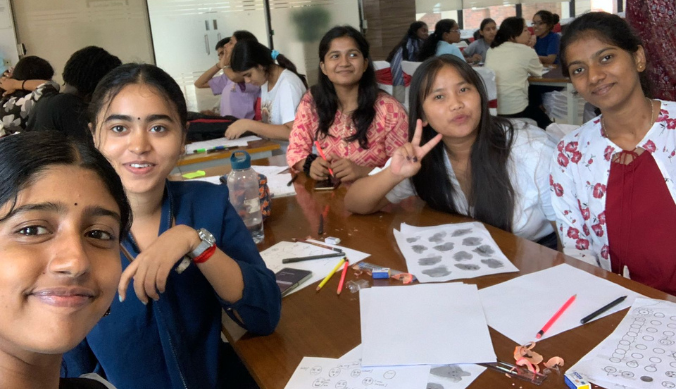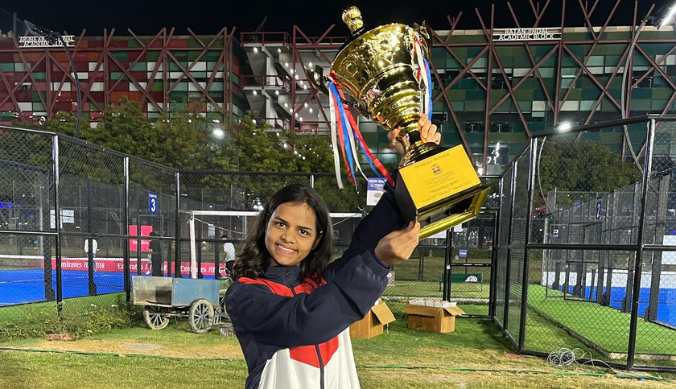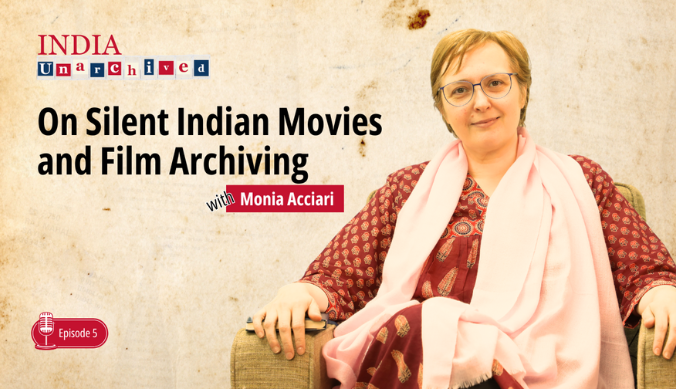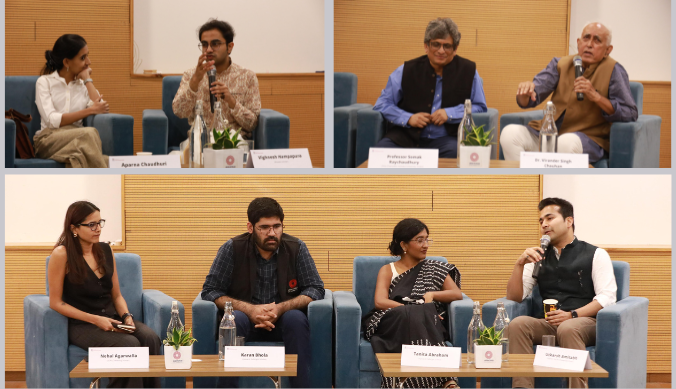Reimagining Education in Northeast India: The STEP Initiative
Worrin Muivah is the Alumnus of the Young India Fellowship, Class 2014 and he is the Founder and Director of STEP North-East.
Worrin Muivah has over seven years of experience working across development and corporate sectors in Europe and Asia. He completed his Master’s in Development Studies, specializing in Human Rights, Peace and Conflict Studies from the International Institute of Social Studies (ISS), Erasmus University, in Hague, Netherlands on a fully funded scholarship from the Government of India. During his time there, he was selected as one of 30 global participants for the Peacemakers 2016 Workshop on “Migration and Securitization of Europe,” organized by Koc University and the University of Kent.
Before starting STEP, Worrin led marketing and outreach efforts as the Head of Marketing/Outreach and Senior Programme Manager at The Naropa Fellowship. His journey has taken him through diverse roles, from coordinating international leadership programs in Romania, Malaysia, and China with Leaders’ Quest, to managing a key political project in Northeast India with N-Sight Consulting, which played a role in a major state election victory.
Worrin has also worked with Amnesty International India in their “Undertrials Project” where he and his team successfully investigated the causes of excessive undertrial detention in the Indian prison system and campaigned for systemic change in the criminal justice system. They successfully published their findings in a report titled, “Justice Under Trial: A Study of Pre-trial Detention in India”.
We spoke to Worrin about his journey before and after the YIF, his entrepreneurial journey, future aspirations, and here’s what he had to share:
1. How has your personal and professional journey influenced your development work/ mission in the North-East?
Growing up in Manipur during the peak of the armed conflict in the 1990s and 2000s was a challenging experience. It meant living with constant uncertainty and deprivation. Education, exposure, and even basic living standards were hard to come by. For many of us, including myself, there was no one to guide us. We stumbled through life, unsure of our goals and ambitions. My academic journey, as a result, was one of trial and error, driven more by circumstance than by choice.
Things began to change for me in 2013 when I received a full scholarship to study at the Young India Fellowship. For the first time, I understood what education could truly mean, how it could open numerous doors. That experience became a turning point, leading to opportunities to pursue higher education abroad on fully funded scholarships and eventually opening the way to a fulfilling career.
During the first COVID-19 lockdown, I had a moment of epiphany. I found myself reflecting deeply on my journey. It struck me that the only reason I had come this far was because of the opportunities I had been fortunate enough to access. At the same time, I couldn’t stop thinking about the thousands of young people back home in Manipur and across the North-East who never get those chances. That realization felt like a call to action. I knew I had to do something about it. Opportunity, I realized, is not just a privilege; it’s a leveller. It has the power to transform not just individuals but entire communities. And so, I decided to dedicate myself to creating those opportunities for others, to help them see a path forward, to find the guidance I lacked, and to dream bigger than their circumstances. This has become the core mission of my work in the North-East.
2. What inspired you to transition into social entrepreneurship?
Working with organizations like Amnesty International and Leader’s Quest has provided a solid foundation for my journey as a social entrepreneur. Since childhood, my parents and grandparents instilled in me the importance of helping others. Despite their poverty, they embodied this value throughout their lives. From a very young age, I knew my calling was to serve others.
These values significantly influenced my career choices. Amnesty International is an organization that upholds justice and protects individuals wherever justice, fairness, freedom, and truth are denied. Working at Amnesty opened my eyes to the systemic injustices in our society. In contrast, my experience with Leader’s Quest allowed me to engage with top executives of some of the biggest Fortune 500 companies. This exposure reinforced my belief that opportunities are the greatest levelers in our society. These experiences have been crucial in motivating me to start my own journey in helping others.
3. How has your own connection with the NE region influenced your approach in building STEP
Working with an organization dedicated to upholding fairness, freedom, and truth opened my eyes to how deeply entrenched inequities can strip people of their rights and dignity, especially those from marginalized communities. In contrast, my next job taught me how leadership and access to resources can unlock extraordinary potential. It showed me the immense power of opportunity—the difference it makes when someone has the right tools and support to thrive.
These two experiences couldn’t have been more different, yet together they shaped how I see the world. They reinforced something I’ve always believed: opportunity is the greatest equalizer. When people have access to the right opportunities, it can completely transform their lives. These experiences, rooted in the values instilled in me as a child and fueled by the conviction that creating opportunities for others is the key to building a more just and equitable world was the beginning of STEP.
4. As a leader with diverse experience, how do you approach collaborations and partnership-building in the development sector?
For me, it is crucial to understand the values and culture of the organisations we collaborate with and ensure they align with our own before taking the next step. It can be tempting to focus on short-term gains and overlook the bigger picture, especially in the development sector where funding is often a challenge. This is why we must remain steadfast in our convictions, values, and principles.
Adhering to these principles may not yield immediate benefits, but I guarantee it will serve you well in the long run and help your organization stand out from others.
5. What was the problem you stepped out to solve? How has STEP impacted the community in terms of bridging any cultural and socioeconomic gaps?
The world is undeniably unfair, but we cannot let this unfairness become an excuse for our lack of success. STEP’s mission is to help students in the North-East navigate this challenging path. Education in the region has long lagged behind mainland India due to various circumstances and socio-economic disparities. From my lived experience, I realized how much of a difference it would have made in my life if I had access to proper guidance and opportunities while growing up. I am a testament to how opportunities can change one’s life, and this is why I founded STEP: to bridge the gap between the rich and the poor, the urban and the rural, and make quality education and opportunities accessible to all.
Since its inception in 2020, STEP has reached over 60 schools and colleges across Manipur, Nagaland, Arunachal Pradesh, and Meghalaya, conducting workshops on career development, personality development, and employability skills. To date, we have impacted the lives of more than 6,000 students.
Through our flagship program, the STEP Fellowship—now evolved into STEP Academy—we provide employability training to underserved indigenous youth and connect them with meaningful job opportunities. One of our proudest achievements is seeing one of our students accepted into the Young India Fellowship, the first ever from Nagaland to achieve this milestone in 14 years.
6. How do you measure the impact of STEP’s programmes?
Measuring success at STEP goes beyond numbers. While we receive consistent positive feedback from our workshops and employability sessions, real success lies in the tangible changes we bring to people’s lives.
Our first flagship initiative, the STEP Fellowship, was designed as a merit-and-means employability program for underserved Indigenous girls, many of whom were orphans or raised by single or unemployed parents. We trained two batches of 24 girls each, achieving a 70% placement rate, enabling these young women to secure jobs, supplement their family incomes, and improve their social standing.
Building on this foundation, STEP Academy was launched in September 2023, training and supporting a wider group of underserved youth. In just over a year, we have graduated three batches of 60 students. One of our Nagaland students became the first person from Nagaland to be accepted into the Young India Fellowship on a fully funded scholarship, setting a powerful precedent for others to follow.
Beyond our structured programs, STEP also runs a consultancy wing where we provide bespoke communication and personality development training. Through this, we have seen remarkable individual success stories. Notably, one of our students from Nagaland cracked the UPSC exam in 2024 and was allotted the IAS. Last year, another student from Manipur cracked the UPSC and was allotted the IRS.
7. How do you envision STEP fellowship and STEP Academy contributing to the long term development and growth of the NE region?
The long-term vision of STEP Fellowship and STEP Academy is to bridge the opportunity and education gap between the rich and the poor, urban and rural areas, and the North-East and mainland India. For many in the region, leaving their hometowns for better education is simply not an option. As a result, they are often at a disadvantage compared to their peers in cities. Through STEP Academy, our goal is to make quality education accessible to them, ensuring that their aspirations are not limited by geography or financial constraint.
Over the last five batches of STEP Fellowship and STEP Academy, 70% of our students have come from tier 3-4 towns and rural areas. Despite their backgrounds, they have been taught by faculty members from some of the best universities around the world. Their location and their financial situation has not hindered them from receiving a world-class education.
Looking ahead, we envision STEP Academy becoming one of the premier institutes, setting a benchmark for providing quality education in the North-East. We already work with some of the best faculty members, and our focus is to continuously improve and expand so that students in the North-East can access the best education, regardless of their social and financial standing, and achieve their full potential.
—————
Worrin Muivah is the Alumnus of the Young India Fellowship, Class 2014 and he is the Founder and Director of STEP North-East. STEP North-East was founded in November 2020 with the aim to democratise quality education and make it accessible to even the remotest villages in North-East India.
Study at Ashoka













